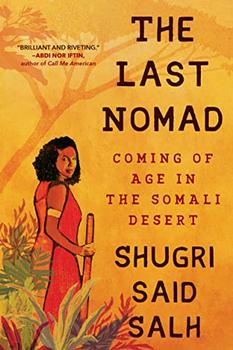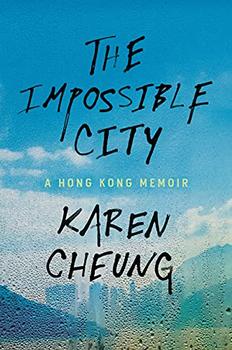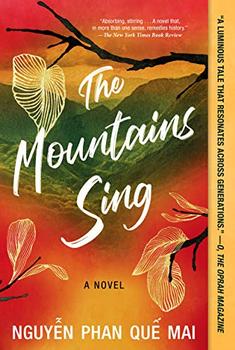Summary | Excerpt | Reading Guide | Discuss | Reviews | Beyond the book | Read-Alikes | Genres & Themes | Author Bio

Coming of Age in the Somali Desert
by Shugri Said Salh"I am the last nomad. My ancestors traveled the East African desert in search of grazing land for their livestock, and the most precious resource of all - water. When they exhausted the land and the clouds disappeared from the horizon, their accumulated ancestral knowledge told them where to move next to find greener pastures. They loaded their huts and belongings onto their most obedient camels and herded their livestock to a new home."
When Shugri Said Salh was six years old, she was sent to live with her nomadic grandmother in the desert, away from the city of Galkayo. Leaving behind her house, her parents, her father's multiple wives, and her many siblings, she would become the last of her family to learn a once-common way of life. The desert held many risks, from drought and hunger to the threat of predators, but it also held beauty, innovation, and centuries of tradition. Shugri grew to love the freedom of roaming with her goats and the feeling of community in learning the courtship rituals, cooking songs, and poems of her people. She was even proud to face the rite of passage that all "respectable" girls undergo in Somalia, a brutal female circumcision.
In time, Shugri would return to live with her siblings in the city. Ultimately, the family was forced to flee as refugees in the face of a civil war—first to Kenya, then to Canada, and finally to the United States. There, Shugri would again find herself a nomad in a strange land, learning to navigate everything from escalators to homeless shelters to, ultimately, marriage, parenthood, and nursing school. And she would approach each step of her journey with resilience and a liveliness that is all her own.
At once dramatic and witty, The Last Nomad tells a story of tradition, change, and hope.
The narrative is packed with details about nomadic culture, including centuries of endurance shaped by powerful cycles of abundance and drought, transience and settlement. While the author's storytelling is skilled and compelling throughout the book, a reference map and cast of characters would have been useful for readers to follow the twists and turns, relationships and travels described. This memoir will likely spark book group discussions about provocative themes: survival, transience, family ties, cultural tradition, female empowerment, immigration, war and peace, climate change, the power of story, proverbs, ancestral wisdom. As a testimony to human resilience as well as a love letter to Somalia and its people, The Last Nomad delivers accessible insights...continued
Full Review
 (981 words)
(981 words)
(Reviewed by Karen Lewis).
 The UN Refugee Agency (UNHCR) estimates that in 2020 there were more than 82 million people displaced from their homes due to human rights issues such as violence and persecution worldwide. And, for as long as humans have existed, people have lived as nomads in various parts of the world, including Somalia, as detailed in Shugri Said Salh's memoir The Last Nomad. There are evident and important differences between cultures with traditions of living in nomadic harmony with the seasons (as in Somalia), people being displaced into forced migration or homelessness, and those who are privileged enough to voluntarily choose to live without a fixed home address. However, any of these situations may involve the use of various types of nomadic ...
The UN Refugee Agency (UNHCR) estimates that in 2020 there were more than 82 million people displaced from their homes due to human rights issues such as violence and persecution worldwide. And, for as long as humans have existed, people have lived as nomads in various parts of the world, including Somalia, as detailed in Shugri Said Salh's memoir The Last Nomad. There are evident and important differences between cultures with traditions of living in nomadic harmony with the seasons (as in Somalia), people being displaced into forced migration or homelessness, and those who are privileged enough to voluntarily choose to live without a fixed home address. However, any of these situations may involve the use of various types of nomadic ...

If you liked The Last Nomad, try these:

by Karen Cheung
Published 2022
A boldly rendered - and deeply intimate - account of Hong Kong today, from a resilient young woman whose stories explore what it means to survive in a city teeming with broken promises.

by Nguyen Phan Que Mai
Published 2021
Winner of the 2020 BookBrowse Debut Award
The Mountains Sing tells an enveloping, multi-generational tale of the Trần family, set against the backdrop of the Việt Nam War. "Both vast in scope and intimate in its telling ... Moving and riveting." - Viet Thanh Nguyen, author of The Sympathizer, winner of the Pulitzer Prize